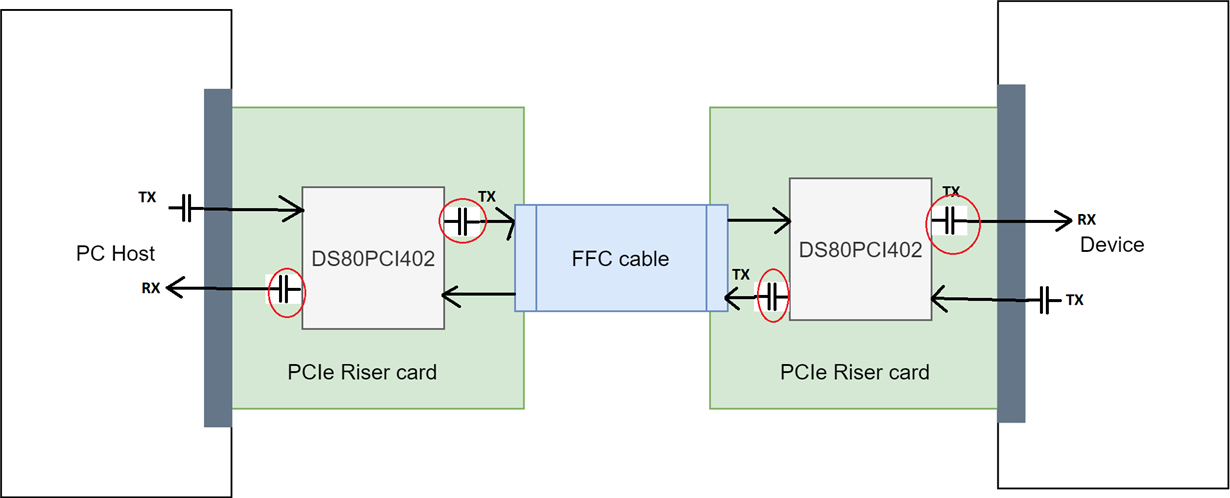Other Parts Discussed in Thread: DS80PCI800
Hello,
I have question regarding AC coupling capacitors on PCIe I'm developing two riser cards with redrivers DS80PCI402 connected by 20cm long FFC cable.
Acording t other thread on this forum, I should decouple all TX sides by 100nF cap. Is that realy necessary? I know, that PC Host and Device have capacitors on their TX sides, so adding another capacitors on TX sides of both DS80PCI402 redrivers seems a bit like overkill and I'm worried about signal integrity. Also, what value of AC coupling capacitors should be used to be compatible with gen2 and gen3? I found values from 100nF to 220nF, what is better?
Thank you for answer



